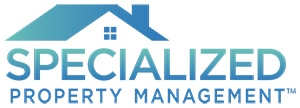When the outbreak of COVID-19 spread throughout the United States and the global community, there was a huge social and economic impact. For many households, job losses made it difficult to pay mortgage or rent. As the effects of the Pandemic seem to be winding down, Fort Worth property managers and commercial real estate owners need to remain prepared to deal with ongoing financial concerns of tenants, and for the possibility of another flare-up or increase of cases. It is imperative that landlords and tenants communicate to ensure everyone is kept informed. This applies to any user of a shared space or co-location as well.
To safeguard renters against losing their homes, an increasing number of states and cities have placed a temporary freeze on evictions. This is an indication that landlords cannot remove tenants who have fallen behind on the payment of rent. This could buy renters more time; however, a moratorium on evictions might create ripple effects that hurt local economies even further. However, a more effective way is there to assist renters and that is by providing them with cash that restores lost income while supporting local governments and small businesses as well.
Rent checks do not just expand the wallets of landlords; they are actually used to make contributions to essential government services like property taxes. Counties and cities are dependent on the revenue from property taxes paid by all their constituents, which is used to cover the cost of providing public services. Even though local governments could postpone property tax payments during this current calamity, the pandemic is already putting a strain on local government budgets.
Landlords also use rent payments to cover their living expenses and the wages of other workers as well. If a large number of households are unable to pay their rent at the same time, the economic impacts of this will be experienced throughout the entire local economy.
It should be noted that tenants, landlords, and other occupants are not expressly required by the majority of occupancy agreements, commercial leases, and building rules and regulations to notify each other about infectious diseases. However, said parties should be cautious to not suppress information that could put the health of other tenants in danger, or they might suffer liability. It’s important to maintain the balance of the health and safety of all parties against the privacy rights of individuals.
In essence, your obligation to inform tenants if a staff member or another tenant is diagnosed with the virus will vary based on emerging public health mandates, individual lease terms, and industry standards that are constantly evolving. Reviewing lease agreements can help you become more knowledgeable about provisions that could obligate you to notify tenants regarding safety or security risks present on the property. Remain alert for any mandates or recommendations from the government that could be applicable to you.
In addition, if a shelter-in-place order has been established, emergency building rules will have to be developed concerning access, security, and closure. Commercial or residential landlords who change services or develop new building rules should ensure tenants are notified before they are implemented.
Additionally, viral epidemics are not typically addressed by commercial lease and property management agreements. The obligations and duties of a property manager or landlord regarding limiting the risk of exposure to the virus by tenants and guests depend on the services, if any, that the property manager or landlord provides at the property.
In net leased properties where tenants are responsible for their own cleaning services and maintenance, the public health obligations of the landlord would be limited. However, a property manager or landlord who provides cleaning, security, and janitorial services such as in a shopping center or commercial office building, should think about specifically implementing the operational recommendations for taking care of tenants during COVID-19 pandemic highlighted below:
- Contact the U.S. Centers for Disease Control and Prevention and your local health department to get guidelines for controlling transmission and the latest information on the virus.
- Ensure frequently touched objects and surfaces are routinely cleaned. These include, but are not limited to, elevator banks, bathrooms, turnstiles, security desk areas, door handles, escalators, and communal pantries and kitchens.
- Landlords usually also have the responsibility for paying building-wide utilities, which include sewer fees, water fees, recycling collection, garbage collection and electricity or gas for common areas. These vital services must continue to function even during this pandemic.
- Provide materials to educate vendors, visitors, employees, staff and delivery personnel about matters like proper cough etiquette and hand hygiene. This should be made available in multiple languages.
- Advise employees who might feel sick to seek medical help immediately and to restrict face-to-face contact.
- Have hand sanitizer stations installed in areas of the building with high traffic.
- Evaluate the internal communications and preparedness plan and make sure that all staff members on the building are prepared, aware of their role in keeping guests and the property safe. They should all be aware of all communication protocols.
- Consider safety protocols and alternatives for large, public events that are being held on the property of the building.
- Have discussions about human resource considerations like screening workers who have traveled to areas in which the virus has been reported and establishing protocols for handling a situation where a worker may be infected with the coronavirus.
- Follow the requirements of Occupational Safety and Health Act as set forth in Section 13 and Section 14 of OSHA No. 1 of 2006. The Act enacts a variety of duties on the employer to guarantee a healthy and safe environment.
- Consider continuing communications with service providers and tenants to make them aware of the steps that are being taken to keep the property cleaned and sanitized. In addition, time should be invested to learn how tenants are addressing any outbreak among their customers and employees.
- Conduct a review of any remedy or right the property might have under insurance policies, which might include coverage for the interruption of business. Below are the coverages which should be the focus of attention:
Rental Loss Insurance
With this insurance coverage, landlords could make a claim; however, it could be subject to conditions and exclusions for such coverage.
Business Interruption Insurance
This type of insurance may cover expenses but similar to rental loss insurance, there might be an exclusion for a “contagion.” There are states that are attempting to have coverage for business interruption mandated. As such, there could be a claim that government intervention should be covered under business interruption insurance.
- Carry out risk assessment analyses and anticipate and prepare to make provisions in the interruption in the supply chain, where possible.
- Have a consultation with counsel as it concerns the impact of COVID-19 on the property, business operations, and contractual obligations.
- Conduct a review of leave policies and verify that you are in compliance with legal requirements as it relates to mandatory quarantines.
It is also very important that lease provisions are reviewed. It is highly likely that some topics to be discussed will include the ones that are highlighted below:
Rent Concessions
Tenants may make requests for rent relief due to financial stress. It is highly likely that rent deferrals, rent reductions and rent concessions will be the most immediate appeals. As it concerns retail tenants who can stay open, some could just make an appeal to pay percentage rent. In some areas, there is no real guideline for having these kinds of conversations. It will be the responsibility of the landlord and tenant to negotiate lease amendments and find individualized solutions.
Government Order
Initially, orders were issued to limit the number of individuals in one place. Some areas have shelter-in-place orders in effect and some individuals have questioned whether the order excuses rent payment or other responsibilities under a lease. It is not likely that leases make provision for a rent reduction or abatement in an intervening event such as a shelter-in-place order as this is unchartered waters. All property managers and landlords should comply with orders from the local government as more jurisdictions are expected to follow.
Force Majeure
Common contract provisions address events of force majeure, also known as “acts of God, or basically events that are beyond the control of parties. Tenants and landlords will have discussions on whether COVID-19 or similar events can be viewed as force majeure which will justify performance or payment of rent under a lease.
Lease Covenants
Additional lease covenants that might need to be tackled include abandonment clauses or ‘going dark,’ co-tenancy requirements, continuous operations provisions, and maintenance obligations of the tenant.
While no playbook on how to handle or prepare for these difficult situations will fit exactly for every property manager, the above steps and measures can be developed and maintained even after the pandemic is over. A collective and collaborative effort will likely be required by the entire real estate industry and governmental organizations to come up with ongoing solutions and guidelines.
Even during this difficult time, Specialized Property Management Fort Worth can help you keep things on track. We will work with your tenants to find the best way for both you and them to continue to live well. Contact us online or call us at 817-886-9220 for more information!






